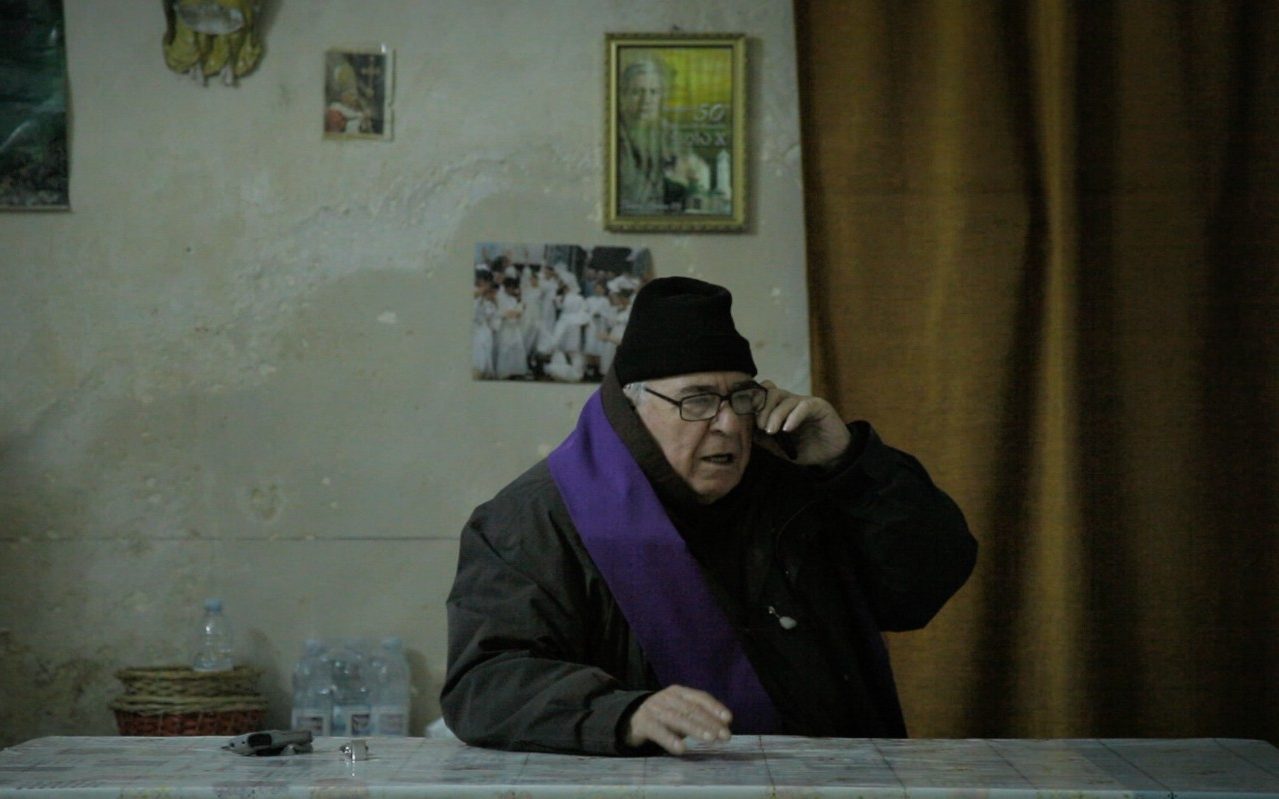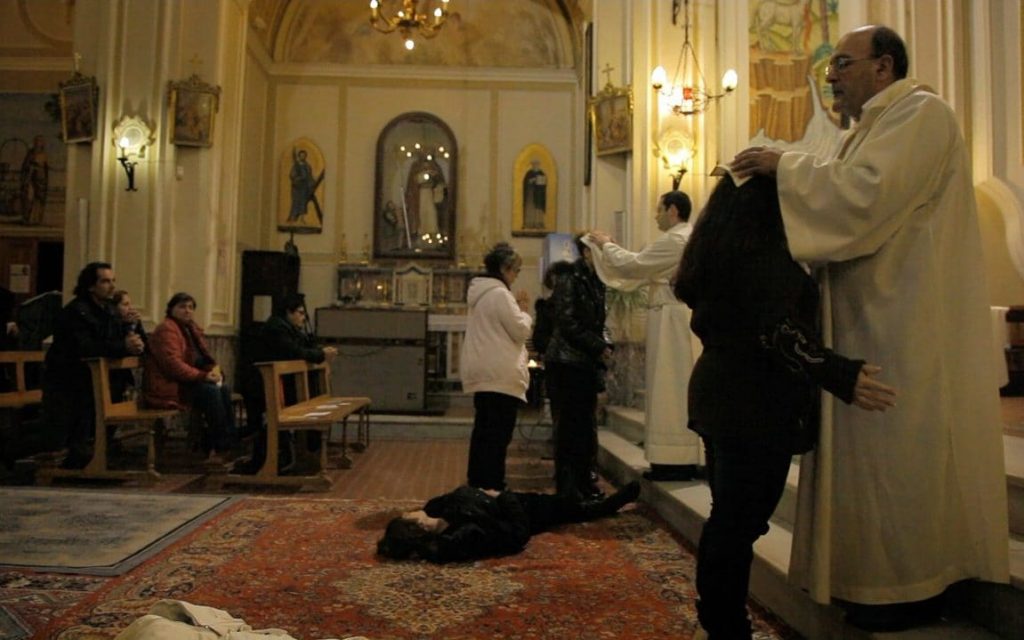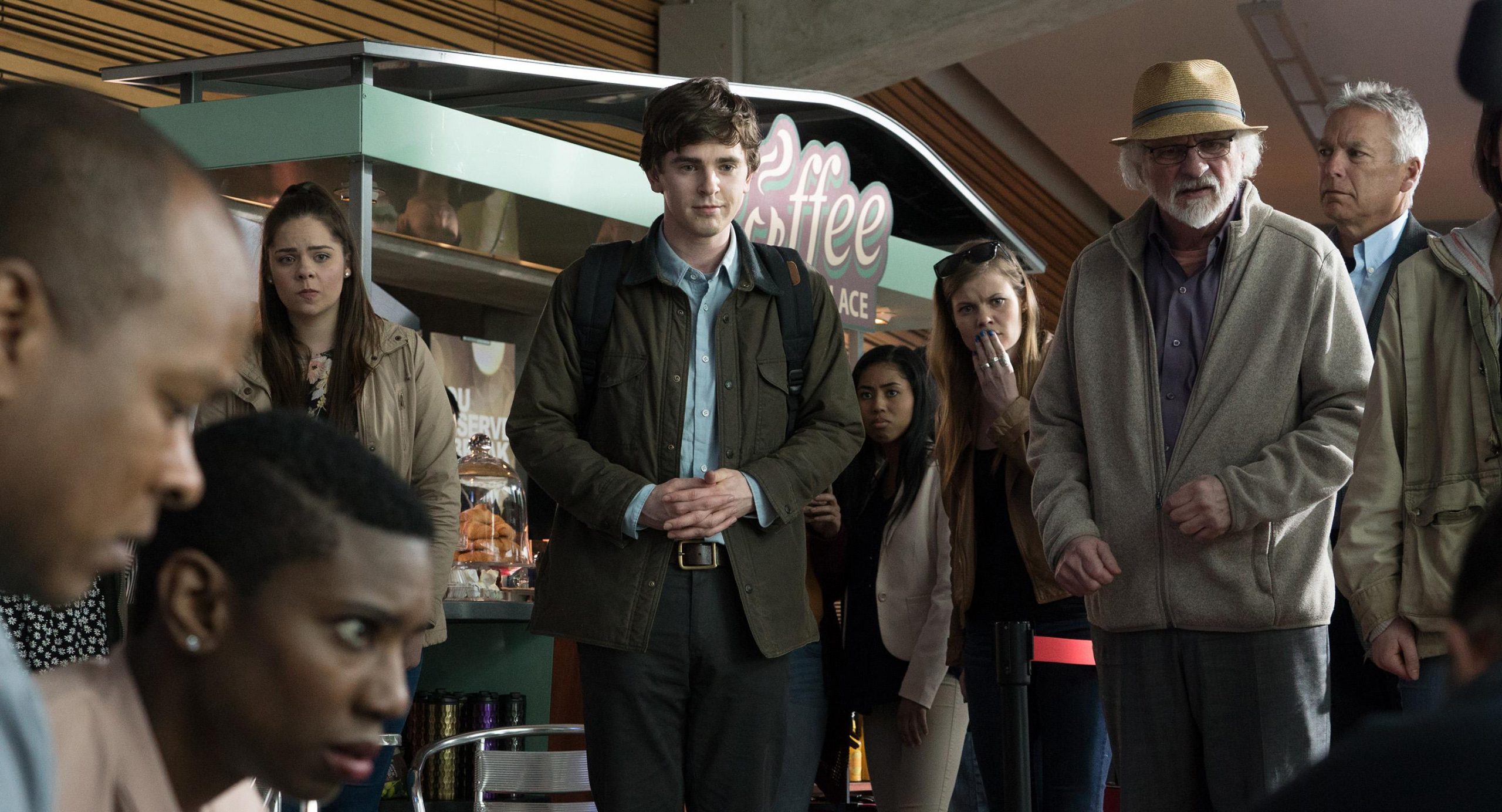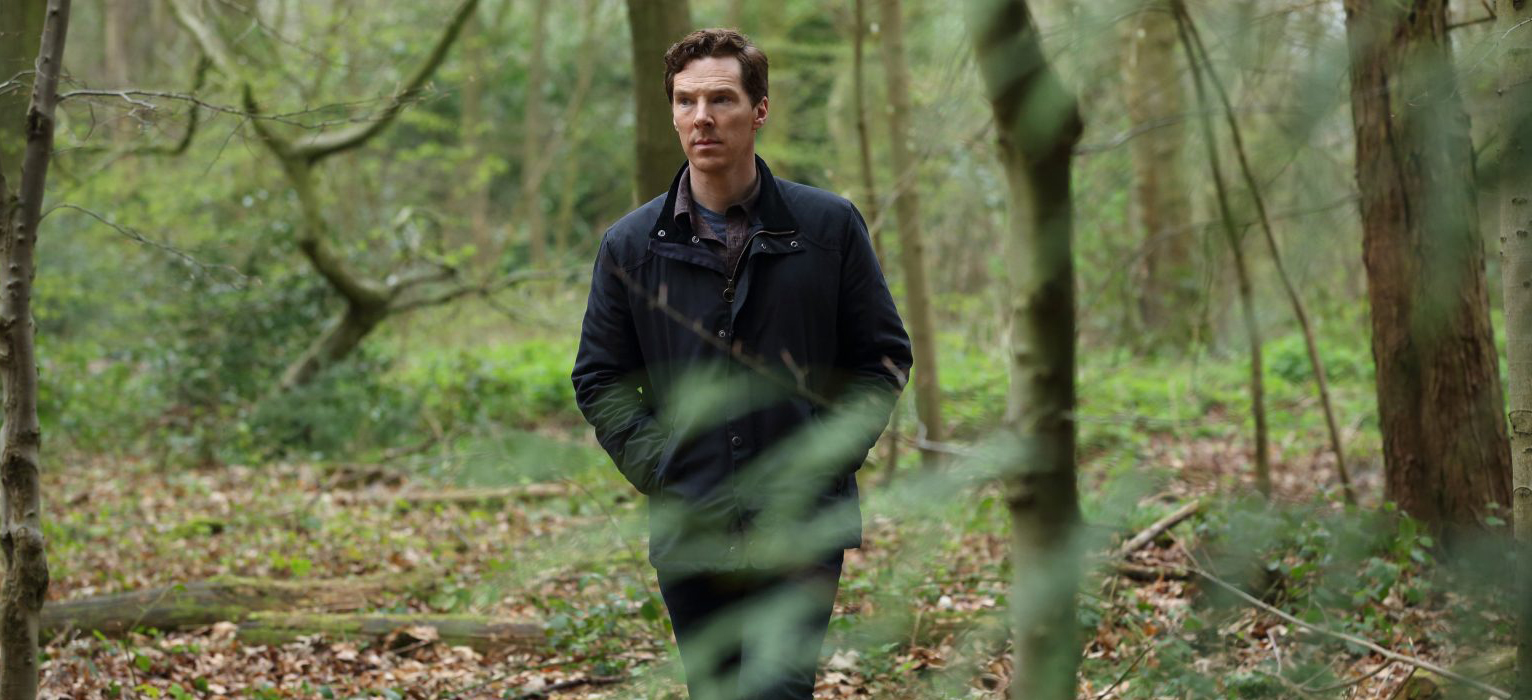Deliver Us (Liberami) Review

Evil is neat. A clear answer for those complex, deeply upsetting tragedies of the world. Patty Jenkins’ Wonder Woman, earlier this year, toys with a villain whose sole purpose is to bring evil to the world. Ares, once destroyed, will take with him the evil of the world. We see in the finale soldiers looking around bemused, as if peace has arrived. But, World War II is due to follow and the underlying truth that evil is not a single demon means Wonder Woman has her work cut out for her in the decades to follow. Federico Di Giacomo, in Deliver Us (Liberami), takes his camera to document Catholic priests in Sicily. Akin to Diana Prince, these men believe that they can rid the world of evil. But Satan is a demon who possesses us, and by throwing holy water and praying desperately for these men and women, apparently they will save souls. If these priests saw Wonder Woman, the simplistic good-defeats-evil arc would chime well, while the after-effects would be neatly ignored.
Father Cataldo arrives at his church. We are in Palermo, Sicily, and crowds are gathering. Men and women ask him for blessings. There are arguments and shouting as they struggle to fit in the small building. This is a special mass and it has a clear purpose: to rid the evil that exists in people’s hearts and minds. Modern day exorcisms have grown in number in recent years, with Cataldo proudly demonstrating his process of Satan erasure. Sometimes, all he needs is a phone, and he’ll exorcise demons via landline or mobile. What is difficult to watch in Deliver Us are the poor men, women and children brought to God, when they are clearly in need of a psychologist or trained doctor. We hear parents who struggle to raise their child beg for help, with the blame placed firmly at the foot of the parents and their lack of attendance to church. Often the priests claim that women and children are “weak”, and this is what is to blame for their sickness.
Evil, to many, can be seen in the graphic horrors of warfare. The innocent families reduced to dust after a bombing in Syria. Evil might be seen in the washed-up bodies of refugee children, on a Turkish beach, or in the millions of Jews who perished at the hands of the Nazis. Writhing, twisting and growling on the cold floor of a decaying church, when viewed in this context, doesn’t come close to many definitions of evil. This is not to undermine the mental health problems a victim may have to contend with but it is difficult to imagine Satan using his fearsome power to merely make a woman act like a cat. Hissing “she’s mine” and “you can’t take her away from me”, akin to a recreation of The Exorcist (or Scary Movie 2), does not mean the proven existence of Lucifer. Di Giacomo continues to follow the parishioners after the service. We see a creepy man tell us how he “used to touch [his] private parts” and was a victim of “asmodeus”, referring to a lustful “prince of hell”. A younger man, dressed in black and wearing a cap with tattoos and piercings, seems the most unlikely attendee, but he has his own challenges, saying he “can’t control himself” and comfortably snorting cocaine before a night out. Despite what looks like a quiet demeanour, Father Catalado, interestingly, doesn’t seem to be able to make time to see him. Then there is a young girl, Giulia, whose family force her to be exorcised but, despite improvement in her health, doesn’t seem as convinced as her family of their “skills”. By exploring further from the confines of the church, it can sometimes feel like a recreated drama, with flashbacks at points to fill in the gaps. Tragically, these are real people and severe issues that an older man pouring water over their heads will not solve.
Di Giacomo continues to follow the parishioners after the service. We see a creepy man tell us how he “used to touch [his] private parts” and was a victim of “asmodeus”, referring to a lustful “prince of hell”. A younger man, dressed in black and wearing a cap with tattoos and piercings, seems the most unlikely attendee, but he has his own challenges, saying he “can’t control himself” and comfortably snorting cocaine before a night out. Despite what looks like a quiet demeanour, Father Catalado, interestingly, doesn’t seem to be able to make time to see him. Then there is a young girl, Giulia, whose family force her to be exorcised but, despite improvement in her health, doesn’t seem as convinced as her family of their “skills”. By exploring further from the confines of the church, it can sometimes feel like a recreated drama, with flashbacks at points to fill in the gaps. Tragically, these are real people and severe issues that an older man pouring water over their heads will not solve.
Deliver Us (Liberami) is fascinating and horrifying in equal measure. In one moment, as a priest tells a parishioner to destroy an adorable collection of soft plush toys, you watch in shock at how convinced they are in their belief. “Especially the black one”, he says, pointing at a black teddy; you can’t help but laugh at the ridiculousness. In passing, we see an enormous image of Padre Pio (a priest who exhibited signs of stigmata and was canonized in 2002) on the back of a commercial truck. It is the perfect visual representation of capitalism and religion, as the Saint is used as an advertisement for a company. The final sequence of Deliver Us (Liberami) is in Rome, as priests attend a convention on exorcising demons. The Vatican are not only condoning it but also actively supporting and spreading this farcical process. Akin to Padre Pio on the truck, the ill health and false practice of exorcism, rather than being condemned and outlaw, has evangelical and financial benefits for the church. Lest we forget, the church is a business (ranking #3 on the World’s Biggest Landowners).
There is a sense that the Catholic Church has had to contend with exceptional criticism in recent years, and there is plenty of evidence to support their acts of charity across the world. But Deliver Us (Liberami), without explicit condemnation, manages to subtly highlight the ongoing errors of the organised religion. Vital viewing for those connected to Catholicism but, even if unconnected, the abuse of power and blind belief of patrons is an unforgettable, deeply unsettling sight to behold in 2017. And it’s only getting worse.
★★★★
Deliver Us (Liberami) is released nationwide on 27 October 2017 and is available to download from 30 October 2017.
SaveSave
SaveSave
SaveSave


